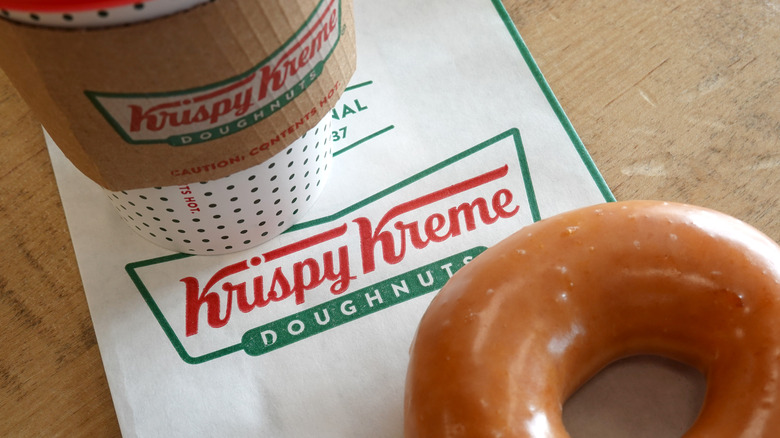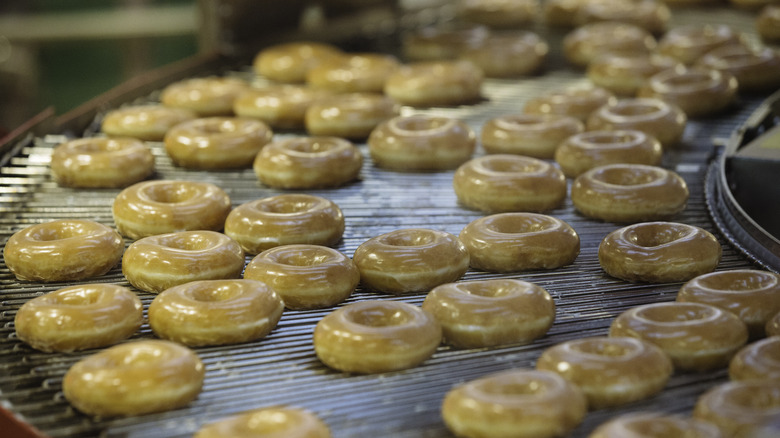Why Krispy Kreme Plans To Focus On Automation Tech In 2023
Watching a Krispy Kreme doughnut travel along a conveyor belt through proofing, frying, and glazing is nothing short of a mesmerizing spectacle. But what if the doughnut-making process became even more mechanized? Following the brand's re-entry to the public market, The Wall Street Journal reports that Krispy Kreme is unveiling plans to combat mounting debt in several ways — one being with increased automation.
After being privatized in 2016 by JAB Holding Co., the WSJ explains that an initiative was set in place to improve the quality of Krispy Kreme doughnuts sold at third-party retailers like convenience and grocery stores. Retail locations were used to supply fresh products to these nearby vendors. However, between the effort to shorten supply chains and the acquisition of many of the franchisees, the company accumulated a significant amount of debt.
With a net debt of over $750 million (as of early October), Krispy Kreme is now focusing on gaining profit by implementing several strategies, such as introducing more tech into daily operations. But how exactly will streamlining operations result in a balanced budget?
Automation as an efficient and cost-effective way to tackle labor shortages
With a goal of generating over $2 billion in revenue by 2026 and resolving debt in the process, Krispy Kreme is planning to raise prices and expand into international markets like Chile, France, Switzerland, and Costa Rica. But, most impressively, the brand is also hoping to cut costs by investing in automation. According to The Wall Street Journal, the brand has started testing technology that would mechanize close to 20% of the doughnut production in-store — a $6 million investment, which is expected to result in $2 million in savings each year.
Beyond financial benefits, introducing more tech into daily operations will also alleviate the stresses felt by a lack of labor. With fewer workers, the company must learn to adapt. In an interview with the WSJ, Josh Charlesworth, the Chief Financial Officer of Krispy Kreme, shared, "There's a lot of manual intervention behind the scenes. We'll have to learn as we go."
Interestingly, while machinery over manpower might seem to only benefit companies, the reality is that in our increasingly modern world, even consumers welcome innovation. In fact, Business Wire uncovered that many believe that automation (whether through A.I. systems, apps, or otherwise) can improve dining experiences and potentially lower costs. As many fast food companies prepare to follow suit, there's no denying that automation is essential if brands want to avoid being left in the dust.

